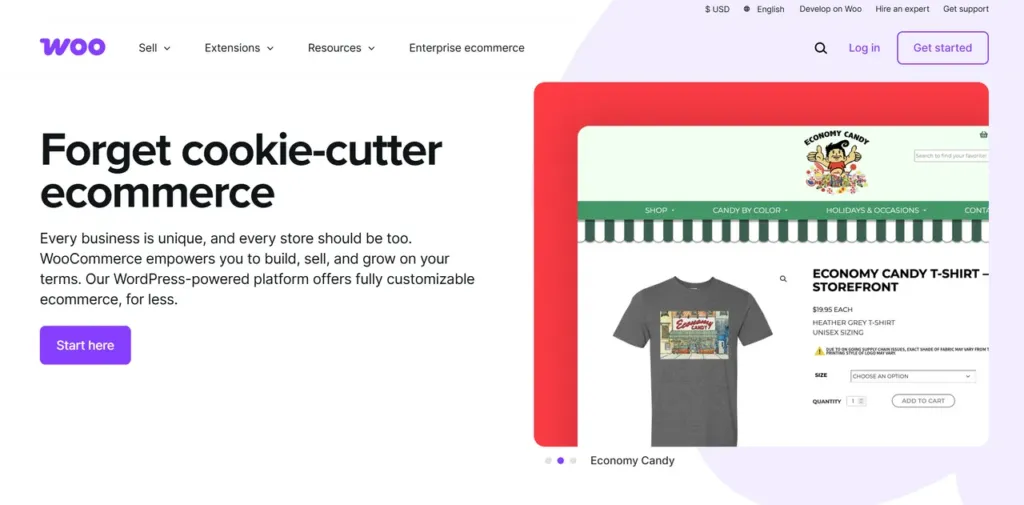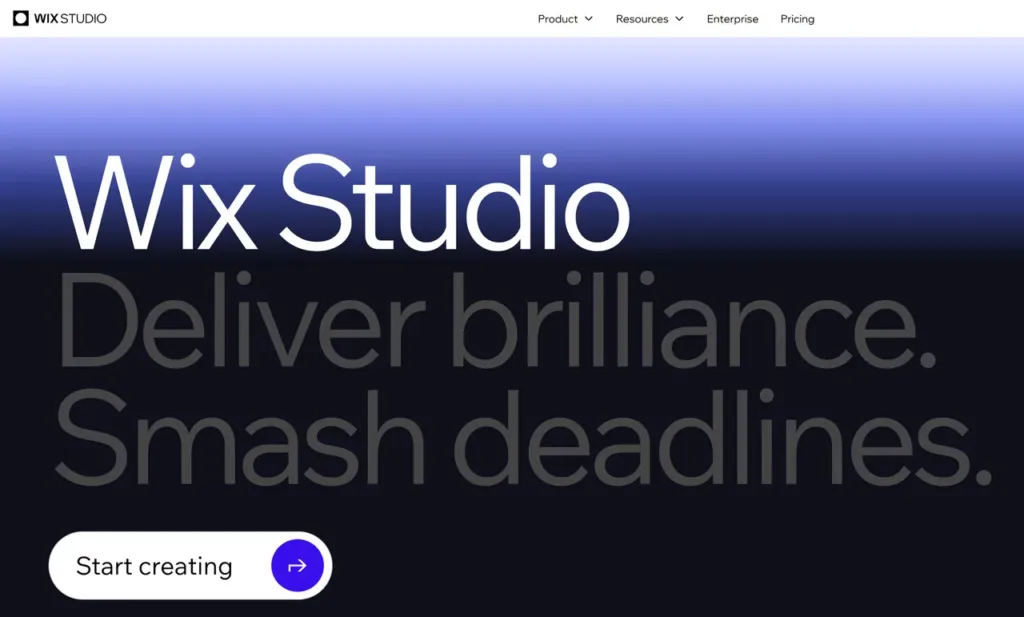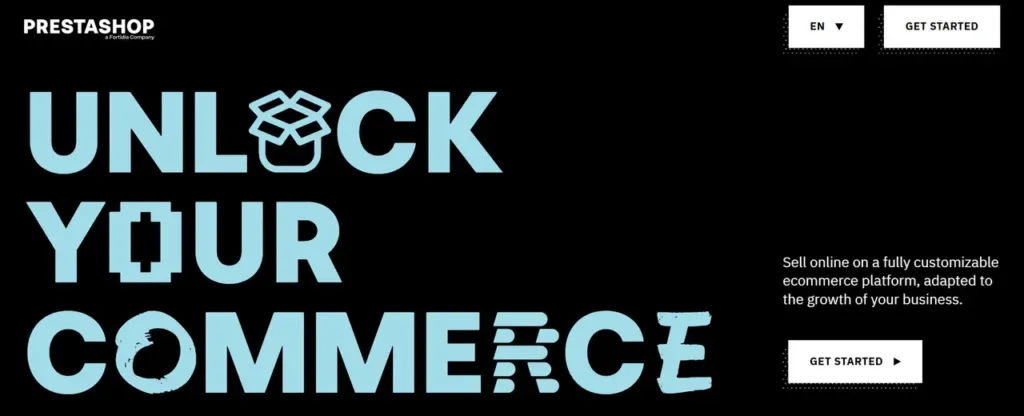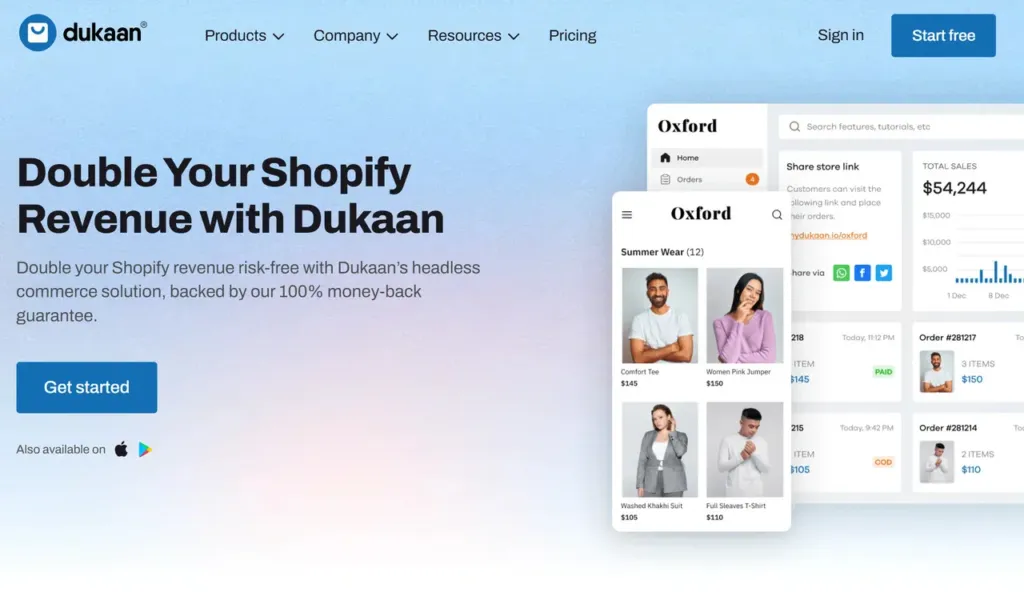Are you looking for a platform to launch your online store but not sure if Shopify is right for you? You’re not alone. Many entrepreneurs are exploring different options that might better suit their specific needs and budget.
Today, we’re diving into the top six Shopify alternatives that are making waves in 2025. These platforms offer unique features that might be just what your business needs to thrive in the competitive e-commerce landscape.
We’ll analyze WooCommerce, BigCommerce, Wix Studio, Magento, PrestaShop, and Dukaan through an objective lens. You’ll discover which platform aligns with your specific requirements for customization, budget, and growth potential.
Let’s explore these alternatives and find the perfect fit for your online store.
1. WooCommerce: The WordPress Powerhouse
WooCommerce has established itself as a formidable competitor in the e-commerce space, especially for businesses already familiar with WordPress.

It transforms your WordPress site into a fully functional online store. It powers nearly 30% of all online stores worldwide, making it a trusted choice for businesses of all sizes.
The platform integrates seamlessly with WordPress, allowing you to manage your content and products from a single dashboard. This makes content marketing alongside your store much more straightforward.
Setup is relatively simple if you’re already comfortable with WordPress. You can install WooCommerce as a plugin and start setting up your store within minutes.
The core plugin is free, but you’ll need to pay for hosting, a domain, and potentially premium themes and extensions. Still, many businesses find the total cost lower than Shopify’s monthly fees.
Customization options are virtually limitless. With thousands of themes and plugins available, you can create a truly unique store that perfectly represents your brand identity.
Pros of WooCommerce
- Complete ownership: You control your store data and can move to different hosts if needed.
- Unlimited customization: With access to the code, you can modify every aspect of your store.
- No transaction fees: WooCommerce doesn’t charge per-transaction fees like Shopify does.
- Extensive plugin ecosystem: Whatever functionality you need, there’s likely a plugin for it.
- SEO-friendly: Built on WordPress, WooCommerce inherits excellent SEO capabilities.
- Community support: Access to a vast community of developers and users for help.
Cons of WooCommerce
- Technical knowledge required: You’ll need some WordPress familiarity to get started.
- Maintenance responsibility: Security updates and backups are your responsibility.
- Potential performance issues: Without proper optimization, sites can slow down with many products.
- Hidden costs: While the core is free, hosting, security, and premium extensions add up.
- Support limitations: No centralized customer support like Shopify offers.
2. BigCommerce: Enterprise-Grade Solutions
BigCommerce has positioned itself as a robust platform for growing businesses with big ambitions and complex needs.

It offers a hosted solution similar to Shopify but with more built-in features out of the box. This reduces the need for numerous apps to expand functionality.
The platform excels at multi-channel selling, allowing you to sync inventory across marketplaces like Amazon, eBay, and social media platforms effortlessly.
BigCommerce provides impressive SEO tools, giving you control over URLs, metadata, and other important SEO elements that can boost your store’s visibility.
Their enterprise-grade features include B2B functionality, custom pricing rules, and advanced product filtering. These features make it suitable for complex business models.
The platform uses a headless commerce approach, separating the front-end presentation layer from the back-end commerce functionality. This provides flexibility for custom storefronts.
Pros of BigCommerce
- Scalability: Handles growth from small stores to enterprise-level businesses.
- No transaction fees: Regardless of which payment gateway you choose.
- Built-in features: Less reliance on apps for core functionality.
- Unlimited staff accounts: No extra charges for additional team members.
- Multiple currencies: Better international selling capabilities.
- Advanced product options: More sophisticated product variants than Shopify.
Cons of BigCommerce
- Annual sales limits: Each pricing tier has maximum annual sales limits.
- Steeper learning curve: More complex interface than some competitors.
- Theme limitations: Fewer template options compared to Shopify.
- Premium pricing: Higher starting price than some alternatives.
- Feature overwhelm: Smaller businesses might not need all the available features.
3. Wix Studio: Design-Forward Solution
Wix Studio represents the evolution of Wix’s e-commerce offerings, catering to professional designers and agencies building stores for clients.

It combines intuitive drag-and-drop design capabilities with powerful e-commerce functionality. This makes creating visually stunning stores accessible even to design novices.
The platform offers impressive AI tools that can generate store designs based on your preferences. This dramatically speeds up the store creation process.
Wix Studio provides extensive design freedom without requiring coding knowledge. You can place elements exactly where you want them, unlike more structured platforms.
The platform includes built-in marketing tools like email campaigns, social media posts, and SEO tools. This creates an all-in-one solution for both store and marketing needs.
Wix Studio offers specialized features for different industries, including digital products, bookings, reservations, and subscription models. This versatility makes it suitable for various business types.
Pros of Wix Studio
- Intuitive design interface: Easiest platform for creating custom designs without coding.
- AI-powered tools: Automated design and content generation save time.
- Built-in marketing suite: Comprehensive marketing tools in one place.
- Industry-specific solutions: Templates and features tailored to various niches.
- Mobile optimization: Automatically adapts designs for different devices.
- Quick setup: Get a professional-looking store running faster than most platforms.
Cons of Wix Studio
- Limited migration options: Difficult to export your store to another platform later.
- Performance concerns: Can be slower than some competitors with large inventories.
- Advanced e-commerce limitations: May lack some specialized features for complex stores.
- Less flexible checkout: Fewer customization options for the checkout process.
- App market limitations: Smaller app ecosystem than Shopify or WooCommerce.
4. Magento: Open-Source Power
Magento (Adobe Commerce) continues to be the platform of choice for large enterprises and businesses with complex requirements.

It offers unparalleled flexibility as an open-source platform. You can modify any aspect of your store to meet specific business requirements.
The platform handles massive product catalogs with ease. Stores with thousands or even millions of products perform well with proper optimization.
Magento excels at multi-store management from a single backend. This is ideal for businesses operating in multiple countries or managing several brands.
The platform provides sophisticated B2B features like company accounts, custom catalogs, and negotiated pricing. This makes it suitable for wholesale and manufacturing businesses.
Advanced marketing capabilities include segmentation, personalization, and sophisticated promotion rules. These tools help convert visitors into customers.
Pros of Magento
- Ultimate customization: Complete control over every aspect of your store.
- Scalability: Handles massive catalogs and high traffic volumes.
- Multi-store capability: Manage multiple storefronts from one admin panel.
- Advanced B2B features: Sophisticated tools for business-to-business selling.
- Strong community: Large network of developers and extensions.
- Enterprise-grade security: Robust security features for large operations.
Cons of Magento
- High technical barrier: Requires developers with specialized knowledge.
- Significant cost: Development, hosting, and maintenance expenses are substantial.
- Resource intensive: Requires powerful hosting infrastructure.
- Complex administration: Steeper learning curve for store management.
- Implementation time: Longer setup period compared to SaaS solutions.
5. PrestaShop: European E-commerce Leader
PrestaShop remains particularly popular in Europe, offering a balance between customization and usability.

It is an open-source platform that strikes a balance between flexibility and ease of use. It’s less complex than Magento but more customizable than SaaS solutions.
The platform has strong multilingual and multi-currency capabilities built-in. This makes it particularly suitable for European merchants selling across borders.
PrestaShop offers over 5,000 modules and themes in its marketplace. These extensions can add virtually any functionality your store might need.
The platform is optimized for local European payment methods and compliance requirements. This reduces friction for customers in European markets.
PrestaShop provides robust product management tools, including bulk editing, attribute management, and customizable product combinations. These features streamline inventory management.
Pros of PrestaShop
- European market focus: Better suited for EU regulations and payment methods.
- Moderate learning curve: More accessible than Magento while still customizable.
- Cost-effective: Lower total cost of ownership than enterprise solutions.
- Strong international selling tools: Built for cross-border commerce.
- Active community: Particularly strong in European countries.
- No transaction fees: You only pay your payment processor’s fees.
Cons of PrestaShop
- Technical requirements: Still needs some development knowledge.
- Support model: Paid support options rather than included customer service.
- Module quality varies: Inconsistent quality in the extension marketplace.
- Performance optimization needed: Requires proper setup for best speed.
- Less popular in North America: Smaller developer community outside Europe.
6. Dukaan: Simplified Selling
Dukaan has emerged as a streamlined solution for businesses looking to launch quickly with minimal complications.

It prioritizes simplicity and speed above all else. You can launch a store within minutes rather than hours or days required by more complex platforms.
The platform offers a clean, modern interface that focuses on essential e-commerce features. This reduces confusion and speeds up the learning process.
Dukaan includes built-in marketing tools like SEO optimization, Facebook and Google integration, and WhatsApp marketing. These tools help drive traffic from day one.
The platform provides strong mobile optimization out of the box. This ensures your store performs well on smartphones, where most online shopping now happens.
Dukaan offers affordable pricing compared to many competitors. This makes it accessible to small businesses and startups with limited budgets.
Pros of Dukaan
- Rapid setup: Launch your store in minutes with minimal configuration.
- User-friendly interface: Extremely easy to learn and navigate.
- Affordable pricing: Lower cost than many competitors.
- Mobile-first approach: Optimized for smartphone shoppers.
- Integrated marketing: Essential promotional tools built in.
- No technical skills required: Accessible to complete beginners.
Cons of Dukaan
- Feature limitations: Less sophisticated than enterprise platforms.
- Customization constraints: Fewer design options than open-source solutions.
- Scalability concerns: May not be ideal for very large inventories.
- Newer platform: Less established than longtime competitors.
- Geographic limitations: Payment and shipping integrations vary by region.
Finding Your Perfect Shopify Alternative
Choosing the right e-commerce platform involves assessing your specific business needs, technical capabilities, and growth plans.
WooCommerce makes sense if you’re already using WordPress or value complete ownership and customization flexibility. The learning curve is worth it for the control you gain.
BigCommerce stands out for growing businesses needing robust features without the technical overhead of self-hosted solutions. Their built-in tools reduce reliance on third-party apps.
Wix Studio appeals to visually-focused brands that prioritize design and ease of use. If you want a beautiful store without coding knowledge, this might be your best option.
Magento remains the choice for enterprises with complex requirements and dedicated development resources. The power and flexibility come at the cost of complexity.
PrestaShop offers particular advantages for European merchants needing strong multilingual capabilities and region-specific payment methods. It balances power and usability.
Dukaan provides the quickest path to launching a functional online store with minimal complications. It’s perfect for small businesses wanting to start selling immediately.
Consider factors like your technical skills, budget constraints, inventory size, and specific feature requirements when making your choice. Many platforms offer free trials to test before committing.
Final Words
While Shopify remains a popular choice, these six alternatives offer compelling features that might better align with your specific business requirements.
From the WordPress integration of WooCommerce to the enterprise power of Magento, the right platform depends entirely on your unique situation. Consider your technical capabilities, budget, and long-term growth plans when making this crucial decision.
Remember that migrating between platforms can be challenging, so it’s worth investing time upfront to choose the right solution. Most of these platforms offer free trials or demos to help you make an informed choice.
